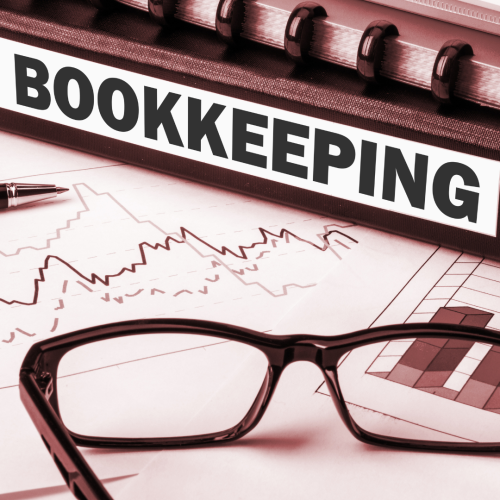Bookkeeping is important in any business, yet many are unaware of how much work is involved. Many people may think a bookkeeper’s job is limited to tracking accounts and balancing ledgers, but the reality is that they do much more than that. But what are the various things bookkeepers do?
The Things Bookkeepers Do For Small Businesses
Bookkeepers manage all financial data for a company. Their duties include tracking expenses and income, generating reports, organizing and maintaining financial documents, preparing taxes, monitoring budgets, and optimizing operational costs. They also play a key role in areas such as payroll management, cash flow management, and debt collection.
This article will cover ten things bookkeepers do that you may need to be aware of.
1: Daily Account Management
Bookkeepers are responsible for helping businesses manage their daily accounts. They work to ensure that all financial transactions are accurately recorded and reported to help business owners make sound financial decisions and stay organized. Bookkeepers provide timely and accurate information so small business owners can focus on growing the business without worrying about where the money is coming from or going.
On a day-to-day basis, bookkeepers help with various activities, such as recording financial transactions, managing payrolls, preparing invoices for clients, reconciling bank statements, and generating financial reports. They also assist in tracking expenses, maintaining records of capital assets, and analyzing data for variances. By understanding each business’s particular accounting system, bookkeepers can quickly identify any discrepancies or inconsistencies in the numbers.
Another vital role of bookkeeping is to monitor cash flow. This involves providing up-to-date reports on incoming funds as well as outbound payments. Bookkeepers also enter transaction fees into the books, ensuring proper record-keeping so businesses can properly budget their finances and avoid any potential problems. Additionally, they are responsible for preparing income statements that help assess a business’s overall performance by summarizing key income figures over a given period.
2: Maintain Business Records
A bookkeeper’s job is to ensure that all your business records are up-to-date and accurate. This includes your financial statements, accounts receivable and payable, inventory records, and payroll information. They will also ensure that discrepancies between the books and existing business accounts are flagged and rectified quickly.
A good bookkeeper usually carries out several activities to help achieve this goal, such as verifying invoices and reconciling bank accounts. In addition, they can also provide advice on how to better manage resources to maximize profitability or minimize taxes.
Furthermore, they play an important role in providing financial reports, which help businesses measure their performance over time. These reports often include profit & loss statements, balance sheets, cash flow projections, and budgets. The bookkeeper must also review these documents regularly to ensure accuracy and compliance with local laws and regulations.
Finally, skilled bookkeepers may be tasked with developing internal processes for more efficient operations and preparing audited financial statements to present to shareholders or other interested parties. All in all, the role of the bookkeeper is essential for keeping any business running smoothly and efficiently by managing its finances accurately.
3: Keeps Businesses Aligned With Tax Laws
Tax is a tricky subject; no matter the size of your business, it’s essential to keep on top of it. Without the aid of an experienced bookkeeper, managing taxes can quickly become overwhelming – there are deadlines to meet, forms to fill out, and regulations to adhere to.
Bookkeepers help ensure that businesses remain compliant with all relevant laws; they are well-versed in tax strategies, filing systems, and the current IRS regulations. They can provide tax advice on how best to save money through appropriate deductions and credits, assess your current tax situation and advise on what must be reported accurately and promptly.
Besides this, bookkeepers take away much of the stress associated with paying taxes; having someone knowledgeable who can review figures quickly means that any errors or discrepancies will be spotted before any fines or penalties are incurred from IRS.
Additionally, they can help you plan, so you have time to budget for future taxes. Bookkeeping services are a low-cost way to stay compliant while avoiding costly mistakes—they truly make sure you pay your taxes correctly!
4: Keep Your Prepared For Tax Season
Tax deadlines are stringent in the small business world; fines or other penalties may be imposed if these are not adhered to. Bookkeepers play an important role in ensuring you meet your tax obligations on time. Not only will they ensure accurate records, but they can also act as a reminder of when taxes need to be paid and as a point of contact with IRS. They will consider any new legislation or changes in tax rates, allowing you to benefit from any available exemptions and tax deductions.
Furthermore, they will review transactions and check against applicable laws and regulations to ensure compliance with all reporting requirements. They can also help reduce the paperwork needed and process payments without delay. Most importantly, bookkeepers provide expert advice on managing your financials for taxation purposes, analyzing data and keeping up-to-date with any relevant trends or developments that may affect your obligation.
As such, their presence is essential for keeping the taxman happy and avoiding unnecessary hassles or financial burdens down the line.
5: Manage Accounts Payable
Bookkeepers are important members of the small business team, making payments on behalf of their employer. This can include supplier invoices, petty cash, expenses, wages, taxes, and other dues. Bookkeepers may also manage employee benefits such as health insurance and pension plans. They keep all these records organized and updated so the business runs smoothly and any taxes or other fees due can be paid on time.
In addition to payment processing, bookkeepers also help to set up budgets for their employers, helping them to stay within their spending limits and avoid unnecessary costs. Through careful financial record keeping, they can advise on how to save money in different areas where possible, helping the business remain profitable. Bookkeepers also provide valuable insights into sales trends, customer segmentation, and more through detailed analysis of financial records.
Furthermore, bookkeepers may use software such as Xero or Quickbooks to keep track of finances with increased accuracy. This combination of traditional accounting knowledge and modern technology allows bookkeepers to manage a business’s finances effectively.
6: Manage Invoices And Accounts Receivable
Another primary task of bookkeepers is preparing invoices and sending them to clients so they can receive payment on time. This has become even more important in the current climate, with late payments often resulting in extreme financial difficulty for businesses.
Bookkeepers must manage accounts receivable ledgers accurately and efficiently, ensuring that all customer transactions are correctly recorded. They will also be tasked with chasing up any late payments that have been made, loaning out debtors, and ensuring that customer payment terms are met. This helps ensure the financial health of your business and provides customers with a better quality of service.
Potential bookkeepers must also ensure that all customer invoices are accurate, complete, and compliant with all relevant regulations. Any discrepancies should be addressed quickly and rectified to maintain trust between your business and its customers.
Furthermore, bookkeepers need to keep track of any discounts offered or promotions run which may affect the amount due, as well as calculate the tax owed where applicable. You must record all customer payments accurately and promptly so you can quickly identify who owes money – something a bookkeeper can easily do for you.
In addition to managing the customer accounts receivable ledger, bookkeepers will also be responsible for reviewing any unpaid bills sent out by suppliers or vendors which need to be paid on time. By doing this, they can help ensure no penalties or charges are incurred due to late payment, as this could damage your relationship with suppliers.
Finally, it’s worth noting that bookkeepers may have access to software solutions that allow for automated invoice reminders when payments are overdue – making sure your business always receives compensation promptly.
7: Financial Statement Preparation
Bookkeepers will also prepare some significant financial statements for small businesses. These can include a profit and loss statement, a balance sheet, and cash flow statements. These documents are essential for providing information about a business’s performance and financial health.
A profit and loss statement, otherwise known as an income statement, shows the net amount of money a company has made or lost over a given period. This report will display gross income, operating expenses, cost of goods sold, and other necessary data to calculate the net income.
A balance sheet displays the assets and liabilities of a company at any given moment in time. This document will also provide insight into the business’s overall financial health by showing its long-term debt and equity value on any given day.
Lastly, cash flow statements show all incoming and outgoing payments made by the business during a specific period. This document shows how much cash was generated from operations, investments, or financing activities during that period.
All three types of financial reports serve a critical role for small businesses, providing crucial information needed to make decisions about their operations going forward. Bookkeepers must ensure accuracy when preparing these reports so that companies have reliable data when making choices related to their finances.
8: Payroll Processing
Bookkeepers’ services can vary, but they typically provide a suite of accounting activities. For small businesses, bookkeepers often fulfill payroll and other HR functions. This includes assisting companies with processing paychecks and tax payments to employees, as well as ensuring salaries are paid on time and that all applicable withholdings and deductions are made correctly.
In addition to this, bookkeepers can assist with the tracking of employee benefits such as vacation days or sick leave. They also ensure accurate records of employee contributions to 401k plans or other savings accounts and documents for workers’ compensation insurance policies.
Furthermore, bookkeepers help ensure compliance with federal labor laws by verifying social security numbers, keeping I-9 forms up to date, filing W-4s and W-2s for each employee, tracking hours worked by hourly employees, maintaining overtime records for non-exempt employees, and more.
As such, the role of a bookkeeper is essential for any business regarding accurate payroll management and human resources tracking.
9: Inventory Reporting
For small businesses, bookkeepers are a valuable asset in producing inventory reports. They are responsible for counting stock items, analyzing the data, and reporting any discrepancies. This helps ensure that small business owners can address any issues quickly and efficiently.
To produce these inventory reports, bookkeepers need to deeply understand an organization’s inventory system and the procedures and policies associated with inventory management. Inventory reports are usually carried out at the end of a business’s financial year end and contain figures used in profit and loss statements.
As part of the process, bookkeepers will assess whether there is an accurate record of all stock items so businesses can adjust their records accordingly and gain insight into their profits or losses for the year. Business owners need to be aware of changes in the company’s inventory levels to monitor inventory costs more closely throughout business operations.
Bookkeepers also identify areas where business owners can reduce costs in terms of inventory management by creating strategies such as batch ordering or reducing minimum order quantities.
Ultimately, small businesses rely on their bookkeeper’s expertise when producing these detailed reports to stay up-to-date with their current financial position and complete an accurate accounting of assets at year-end.
10: Book Preparation for Certified Public Accountants
Bookkeeping is essential to the accounting process, ensuring that all accounts are valid and current. It is the bookkeeper’s job to keep accurate records of expenses, income, receipts, and invoices and track other important financial documents such as bank statements and tax returns.
The bookkeeper must also enter data into the accounts accurately to ensure that it reflects the financial situation of the business or organization. Having an up-to-date set of accounts enables the accountant to effectively assess a business’s financial performance and make appropriate recommendations for improvement.
This, in turn, allows companies to maximize their potential and keep up with industry developments.
Accurate records are important for tax purposes and can be beneficial when applying for loans or other financings. Since having proper books gives lenders more confidence in a company’s ability to pay back any loans, this increases its chances of obtaining funding at competitive rates.
In addition, bookkeepers will help prepare regular financial reports for management teams to monitor progress, evaluate strategies’ success, and identify areas where costs could be reduced or profits increased. Furthermore, bookkeepers help create budget estimates that help businesses plan ahead financially by predicting cash flow and future revenue streams.
Overall, it is evident that bookkeepers play a hugely important role in ensuring that accounts are kept up-to-date and valid so that accountants have access to the necessary information required to provide valuable insights into a business’s finances.
Keeping on top of this critical data enables businesses to maximize their potential while avoiding any costly issues arising from inaccurate accounting records.
Is Getting A Bookkeeper A Good Idea?
Do you need a bookkeeper? The bottom line answer is a resounding yes! While many entrepreneurs and small business owners may not think they need one, and try to perform their own bookkeeping, the truth is that having a bookkeeper on your team can provide substantial benefits.
When you bring in a bookkeeper, they can help you stay organized and on top of your records. Bookkeepers can help you manage invoices and bills, prepare financial statements, track expenses, and more. They can also help find potential areas of improvement or cost savings related to managing finances.
Their specialized knowledge makes having an experienced professional bookkeeper invaluable for any business. For instance, they can provide insight into how to structure contracts to maximize profits or track spending against budget goals.
Additionally, they have advanced accounting skills that allow them to understand better the numbers behind your business decisions and projections, allowing them to make more accurate predictions about future trends.
Bookkeeping Services
At Sunrise Virtual Assistant Services, we are proud to offer comprehensive bookkeeping services. Our staff of professionally trained virtual assistants has experience with various accounting software systems so that you can be sure that the job is done right.
We will work with you to create a set of customized solutions that fit within your budget requirements while still providing quality results. Contact us today for a consultation so we can get started finding the best way forward for your accounting needs.


